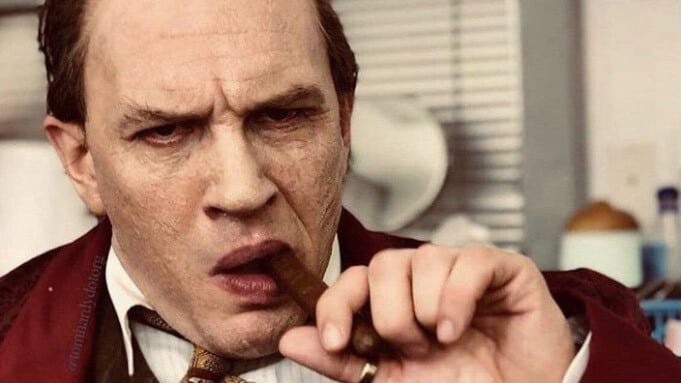Few directors have endured the meteoric highs and nightmarish lows of Josh Trank, with even fewer experiencing that wide array in their first two projects. His directorial debut Chronicle was praised as a reinvention of the superhero and found footage genres, raising his profile significantly once it turned into a box office hit. His follow-up The Fantastic Four was universally panned by critics and audiences despite its unique perspective, with Trank making matters worse with a now-infamous tweet that blamed studio interference. After a break from the industry, Trank returns with Capone, an admirable passion project that fails to connect with its ambitions.
Capone follows the subsequent year of Alfonso Capone’s life (played by Tom Hardy), with the former mafioso experiencing a mental breakdown amidst his notorious career as a violent killer.
Similar to The Fantastic Four, I can’t help but at least admire Trank’s vision. Instead of crafting this memoir in the traditionalist biopic formula, Trank attempts to capture Capone’s decaying state through surrealist imagery (the director compared it to Twin Peaks rather than your typical mob movie). These nightmarish sequences strive to show the confrontation between the mobster figure and his past actions, blending the realms of reality in stimulating ways.
Also similar to his previous effort, Trank’s execution can’t match his ambition. Visually, Capone is flat rather than subversive, never quite selling the blended realities with much pastiche. Even with Peter Deming’s assured hands as a cinematographer, there is a low-budget feel that the production can never quite shake, with Trank’s direction not doing enough stylistically to bring the tormented memories of Capone to life. Worse of all, it doesn’t have anything particularly profound to say through its imagery, touching upon surface-level traumas that never build to a substantial statement.

Few actors dedicate themselves to their craft like Tom Hardy, but Trank’s efforts misuse his dynamic qualities. Hardy tries to disappear into Capone through sheer physicality, from his hunchback presence to his distinct vocal cadence grabbing the screen. All of these choices ultimately muddle the character, with Hardy’s loud persona coming off as over-the-top and hammy. Supporting players like Linda Cardellini and Matt Dillon stand on the sidelines with little to do, with Trank’s screenplay never giving these actors much nuance to work with.
While I admire his ambition, Josh Trank’s Capone is a missed opportunity, with the director’s technical abilities never matching his conceptual ingenuity. It will be interesting to see where the director’s career goes from here.

